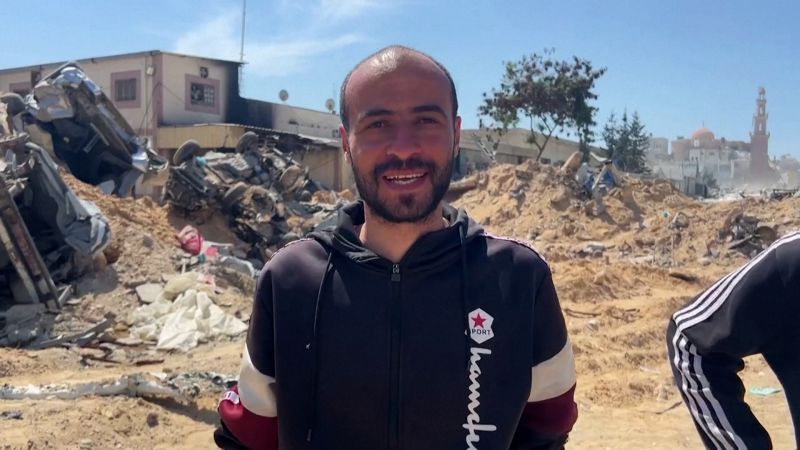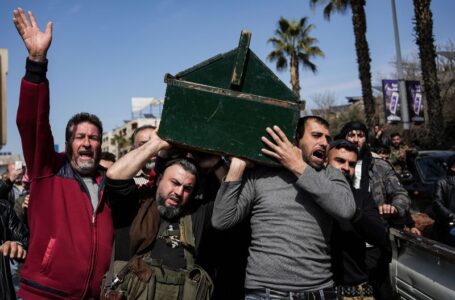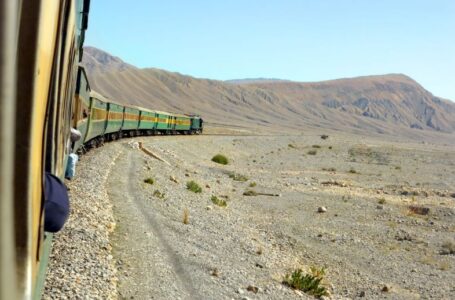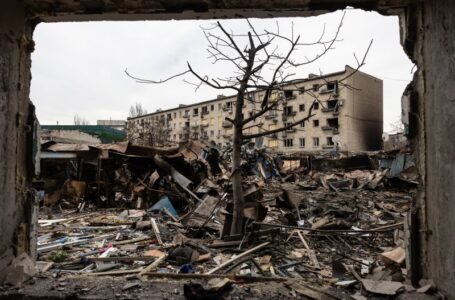‘There’s no more life’: Khan Younis residents return to find former neighborhoods in ruins


Palestinians forced from their homes in Khan Younis by Israel’s military offensive have begun returning in small numbers to the southern Gaza city following the withdrawal of Israeli forces, with many arriving to find their former neighborhoods looking like wasteland.
The Israeli military on Sunday said it had withdrawn its ground forces from Khan Younis after months of fierce fighting in what it described as a major Hamas stronghold. Much of the city, once home to hundreds of thousands of people, has been bulldozed and the video shows the frames of homes completely ripped up alongside roads strewn with rubble and debris.
It shows the returning residents retrieving what few things they can salvage; mattresses, carpets, kitchen containers and blocks of wood. Some children carry sofas and chairs over their backs.
“This is what has become of Gaza,” says one man, driving through the rubble with his motorbike.
Other former residents traveled in on foot, some on bicycles, some on pickup trucks and some on the back of donkeys.
‘Devastation everywhere’
Perched atop a dusty rug with her back resting on a large cushion, 12-year-old Aseel points to a pile of rubble in front of her where she says her home used to be.
“There it was, it’s destroyed,” she says.
“Our house is gone. We managed to grab some pieces of furniture [but] we were only able to retrieve small things from our house. I wish I could’ve gotten my clothes.”
Another Palestinian youth, Tamar, is carrying pieces of wood.
“I’ll go sell them to make 10 to 20 shekels, so that I never have to extend my hand out and beg for money from people,” he explains.
He didn’t recognize his house when he first returned, Tamar says. “If it weren’t for my neighbors, I wouldn’t have known it was my house. Devastation everywhere,” he says.
The vast majority of buildings in the footage, including homes, offices and mosques, have been significantly damaged and many are entirely flattened.
On Monday, the European Hospital in Gaza said the bodies of 46 Palestinians had been recovered following the Israeli withdrawal from Khan Younis, most of them “found dead under the rubble of demolished buildings.”
Those buildings that are still standing are covered in soot and riddled with bullet holes and artillery damage.
Piles of empty bullet shells and the remnants of at least one mortar lie on the ground.
“My house got completely destroyed. It was three stories, and now it’s one with the ground. I wasn’t left with any memories. Just like everyone here. They destroyed the area in a barbaric and intended way,” says another former resident, Saad.
Mahmoud Ahmad, an elderly man, stands inside his destroyed home, reduced to only a frame. He points to areas that used to be rooms, recounting what used to be where and what he has lost.
“That was my washing machine, they burned it, the Israelis. I had a nice little sitting area here, it’s all gone. That was my fridge, look, the door is removed. This was the kitchen. There’s nothing left.”
‘They destroyed us’
Throughout the footage in Khan Younis, Israeli drones can be heard buzzing overhead, as can occasional gunshots.
Graffitied on the walls of what appears to be the office of a telecoms company are Stars of David and anti-Arab profanities written in English.
“Gaza belongs to the Jews,” reads a marking in Arabic on the wall inside a torn up building.
Before the October 7 attack by Hamas on Israel, Khan Younis – Gaza’s second-largest city – had been home to more than 400,000 people, according to Gaza’s Ministry of Interior.
In the early days of the war, the city was a haven for thousands of Palestinian civilians fleeing Israeli military operations in the north of Gaza.
But when Israeli forces began an assault on Khan Younis in early December, those living there were forced to seek refuge further south.
More than a million Palestinians are now sheltering in dire humanitarian conditions in the southern city of Rafah, where Israel is also planning an offensive.
Even for those now able to return to Khan Younis, there is little solace to be found.
He says that while he was sheltering in Rafah he spent his time reading and writing because he knew he wouldn’t be able to go back to school.
“How are we going to learn now?” he asks. “There’s no more life. Our childhood is gone. They destroyed us.”











